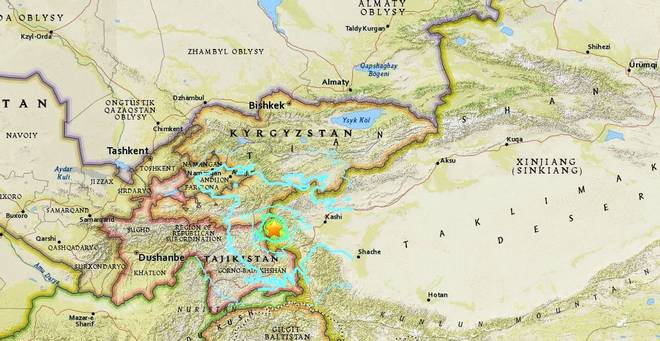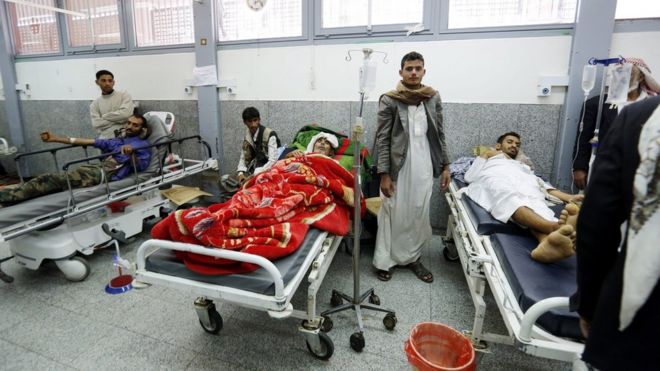
More than half of the health facilities in war-torn Yemen are closed or partially functioning, a survey by the World Health Organisation has found.
Only 45% of the 3,507 facilities contacted in 16 out of Yemen’s 22 provinces reported that they were fully functioning and accessible.
There were only two doctors or fewer in 42% of the 276 surveyed districts.
The WHO warned the lack of adequate health services meant people were being deprived of life-saving interventions.
Yemen has been devastated by an 18-month conflict between forces loyal to President Abdrabbuh Mansour Hadi’s government, backed by a Saudi-led multinational coalition, and those allied to the Houthi rebel movement.
- Inside the fight to save Yemen’s health system
- The man who lost 27 family members in an air strike
- Saudi Arabia rejects responsibility for Yemen’s woes
- One woman’s lonely struggle against famine in Yemen
- Yemen crisis: Who is fighting whom
As of 25 October, at least 7,070 people have been killed and 36,818 others injured, according to data submitted by health facilities to the UN. The death toll does not provide a breakdown between civilians and combatants.
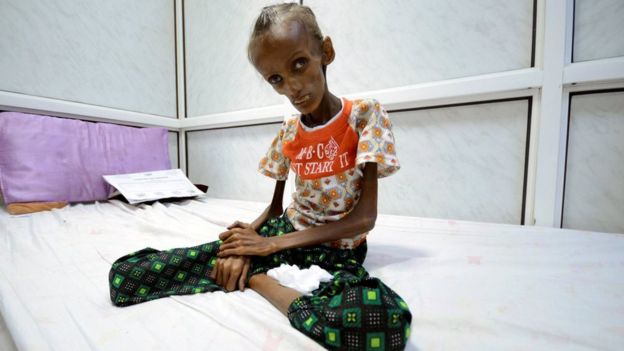 Image copyrightREUTERS
Image copyrightREUTERSMore than three million people have also been displaced, and 21 million are in need of some form of humanitarian assistance.
Two million people are malnourished nationwide, including 370,000 children who are severely malnourished.
The WHO said the critical shortages in health services meant mothers and newborn babies were not receiving essential antenatal care, while people suffering from acute or chronic conditions were being forced to spend more on treatment or forgo treatment altogether.
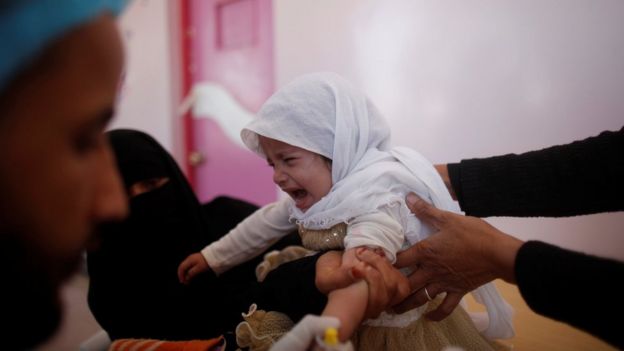 Image copyrightREUTERS
Image copyrightREUTERSThe absence of communicable diseases management had also increased the risk of outbreaks of cholera, measles, malaria and other endemic diseases, the UN agency warned.
In early October, Yemen’s health ministry announced that there was a cholera outbreak. By the end of the month, there were 61 confirmed cases and 1,700 suspected cases in 10 provinces.
Four cholera-related deaths were also confirmed, along with 42 deaths associated with acute watery diarrhoea.
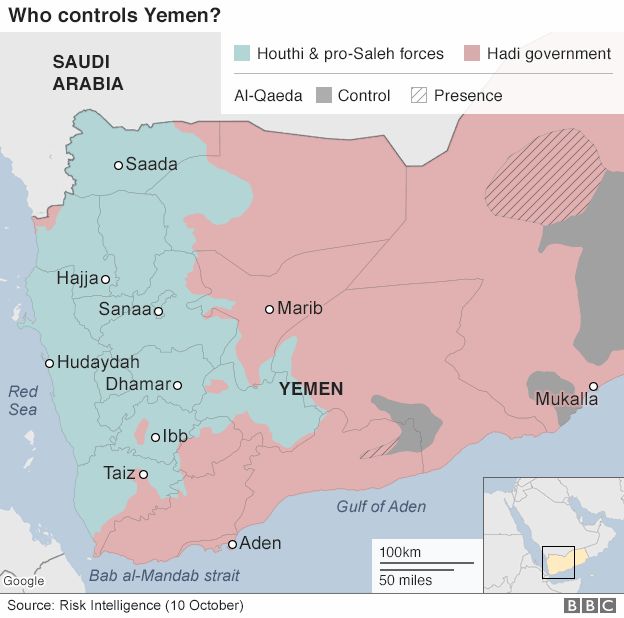
[Source:-BBC]


